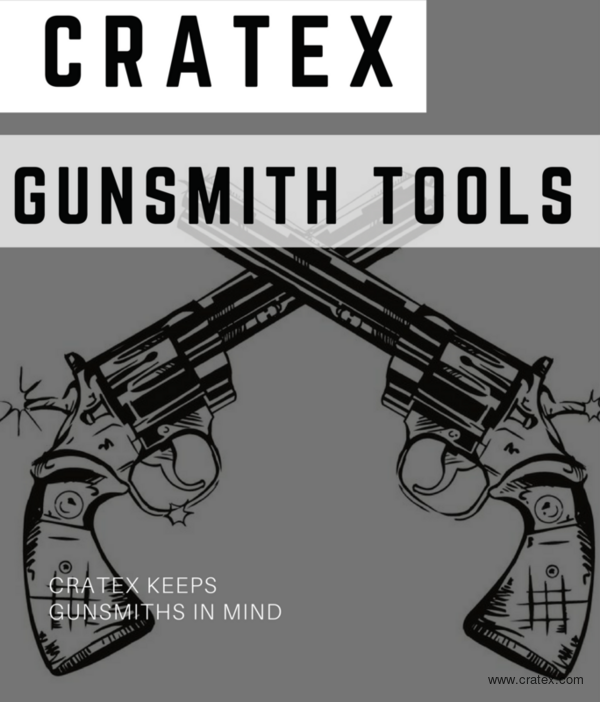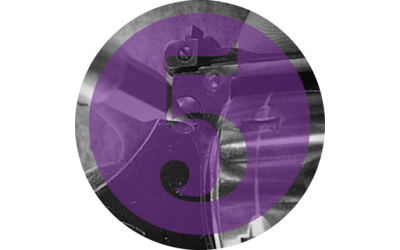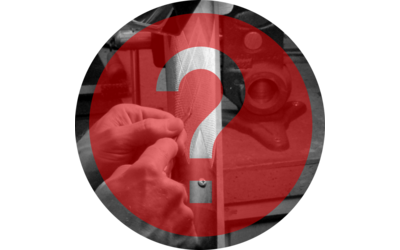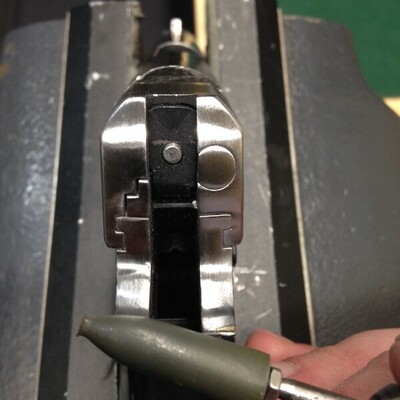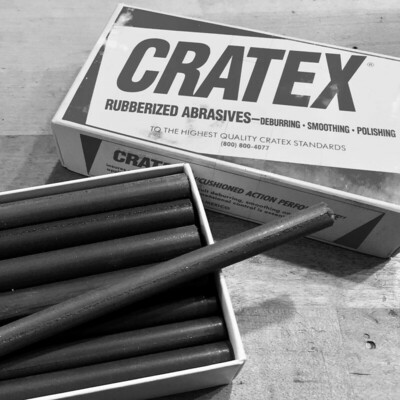You can say that a gunsmith is a person who repairs, customizes and/or builds firearms, but it won’t truly illustrate the skill set and width of knowledge a gunsmith must own to be able to do what he or she does.
A gunsmith can perform quite simple tasks, for example, inspecting, cleaning, disassembling and reassembling a firearm, but is also capable of performing complex tasks, including metal refinishing, wood and metal engraving, or design. Therefore, a master gunsmith must possess a wide range of skills which make him part fabricator, part mechanic, part metalworker and wilder, woodworker and part an artist.
First, a gunsmith needs to know his/her guns – must be familiar with all kinds of types and models of firearms to be able to customize their parts, analyze and improve their performance.
A gunsmith must possess knowledge in the use of numerous hand and power tools, measuring devices and machinist tools. Not only is machine shop knowledge required, but also knowledge in: mathematics, materials engineering, ballistics, chemistry, and, of course, running business.
And above all, a gunsmith must be a good artist, both when it comes to coming up with the design and transferring it on a piece of paper and engraving or carving the wooden or metal part of the firearm.
Since the road to becoming a professional, master gunsmith is a long and exhausting one, and since not all gunsmiths can possess all previously mentioned skills, many of them focus on becoming specialist in preferred areas: custom building/designing, finishing work, stockmaking, checkering, engraving, some specialize in work on revolvers and pistols only (pistol smiths), and some become manufacturers of certain types of gun parts and focus on distribution and sale to other gunsmiths.
But, how do you become a gunsmith in the first place? This chapter contains information on precisely what it takes to become a gunsmith.
Technical Skills of the Trade
Gunsmiths can create true pieces of art, but it’s not just art what gunsmithing is. Guns that are designed and build must also be safe and must function properly, as the slightest technical slipup could result in serious injury or worse.
A gunsmith must become primarily skilled in woodworking, metalworking and machinery. He or she must also get familiar with numerous other shop materials, as this knowledge is essential for creating good-quality guns.
This involves using various wood shop and metal shop equipment, such as drill presses, drills, hand rotary and air tools, cutting tools, grinding tools deburring and metal polishing tools, precision measuring instruments, files, chisels and so on.
Math skills are also important, as gunsmithing involves a lot of measuring, precise cutting and executing calculations for technical specifications, but mechanical expertise is essential. Namely, a gunsmith must understand how a gun works, must understand its components and how they move and work together. Understanding gun mechanics is crucial for assembling all parts properly, but also for identifying a problem when a gun isn't working as it was supposed to.
Being an engineer is not a must, but it is certainly recommended. You would learn more advanced calculations, ballistics and so on, which can be very helpful for the profession.
Interest in History and Production of Guns
As a gunsmith and a gun enthusiast you must be interested in the history of firearms. From the dawn of the firearms in the 1200s China to the long period of development of modern weapons to the introduction of automatic handguns at the end of 19th century, the history of firearms is extensive and impressive.
Not all gunsmiths are interested and familiar with all eras – some have more extensive knowledge of historical firearms and some lean more towards the contemporary period. Either way, gunsmiths are usually collectors or hobbyists, which means that the fondness they felt towards firearms developed a desire to repair or craft guns on their own.
Regardless of the preference and the knowledge base, gunsmiths are always keeping track with new developments, new models, accessories and manufacturers. Many of them attend conferences, events and trade shows to meet other gunsmiths, learn more and teach others more by sharing their experiences.
Understanding the Importance of Gun Safety
Every gunsmith knows that guns are no toys and that they should be handled with respect, responsibility and according to standard safety rules and laws. All successful gunsmiths are committed to gun safety.
A gunsmith is responsible for more than just creating an impressive gun for a showcase. A gunsmith carries responsibility for creating a gun that is not faulty and dangerous for the user. It is important to always follow safety guidelines, laws and regulations to protect your customers.
Education and Training
Of course, the earlier you start, the more skills you'll develop over time. The best would be to start in high school by taking courses, such as machining, woodworking and drafting, as these will help you obtain basic skills needed for the trade. However, in case your high-school days are long over, and you failed to obtain such a skill set, don't worry as it's never too late to learn.
By enrolling in a gunsmithing school or by starting an apprenticeship, you take the next step towards transforming your firearm hobby into a rewarding career that involves learning about altering triggers and safeties, diagnosing accuracy problems and preforming important self-check procedures.
Here are different ways that can bring you closer to achieving your goal of becoming a professional gunsmith.
Gunsmith Apprenticeship
A good idea would be to start an apprenticeship to build basic craftsmanship and knowledge. So, how to become a gunsmith apprentice? Gaining hands-on experience by learning directly from an expert is a one way to go, so make sure you seek out a local, experienced gunsmith.
You can also apply for an apprenticeship status through The Association of Gunsmiths and Related Trades. TAOGRT tends to match experienced sponsors with students looking for getting gunsmith apprenticeship.
A great thing is that the apprentices are paid for their work. Quite often they start working for a minimum wage that increases over time and with experience.
To become an apprentice, you must be 16 or older, and you'll need to be able to legally own and possess a firearm in compliance to federal and state laws. If in high school, you'll also need to graduate and maintain at least a "C" average, combined with a permission from your legal guardians and school officials.
As an apprentice you'll learn how to safely use gunsmithing tools, such milling machines and lathes, you'll learn how to make fixtures, make and fit gunstocks, perform barrel work and action work, and learn all there is to firearms theory. Sometimes apprentices are required to purchase their own tools to use over the course of their training.
To help ensure proficiency, TAOGRT has developed certain standards like competency exams. There are specified numbers of hours that an apprentice must spend gaining experience in order to complete the gunsmith apprenticeship. Also, the apprenticeship will last a minimum of four years for a standard gunsmith training.
An apprentice can earn the certificate based on the fulfilment of the hourly requirements and the specialty. Possible certifications would be as follows:
- Firearm Repair Specialist
- Firearms Restorer
- Stock Maker
- Barrel Maker
- Firearm Engraver
- Journeyman Gunsmith
- Journeyman Rifle Smith
- Journeyman Pistol Smith
- Journeyman Shotgun Smith
- Journeyman Classic Firearms Smith
- Master Gunsmith
Colleges & Technical Schools
After you complete your apprenticeship, you can take your knowledge to the next level by rolling into a technical college or university that offers gunsmithing programs and proper credentials. Most of these programs last between 6 months and 2 years, and a background check is necessary for all students that apply.
The educational gunsmithing programs require students to spend time gaining hands-on experience in machine shops, they usually have the opportunity to get acquainted and work on different types of guns during their education, and some colleges offer their students an extra year of training in the form of working in or managing a gunsmith shop. You'll learn everything from mechanical and tooling skills, to diagnosing and repairing guns, safety procedures, and even chemistry and ballistics.
Some of the very best colleges and schools include Trinidad State Junior Colledge in Trinidad (CO), Yavapai Colledge in Prescott (AZ), Pennsylvania Gunsmith School in Pittsburgh (PA), but we'll write about best gunsmith schools in detail in our next chapter.
Online Gunsmithing Schools
Of course, there are a lot of students that are unable to attend gunsmithing classes on-site, so luckily, there are many online or distance-learning courses that are offered by many different schools and colleges.
Another benefit of online courses besides not being obligated to physically visit the college or school (which saves you time and money) is the possibility finish the courses at your own pace, which also means much faster than you would by attending traditional, on-site courses.
The online courses usually consist of several learning modules. The students are required to complete the assigned readings, practical exercises and online examinations in order to complete the course. The schools use various e-documents, such as PDFs, video presentations and demonstrations to convey technical concepts to the students. Some colleges offer textbooks, some video lectures and textbooks.
According to online reviews we picked top 5 best online gunsmithing schools to give you a place to start when researching the best school for you.
1. Penn Foster Career School, Scranton (PA)
The Penn Foster Career School offers you to build or refine your gunsmithing skills through affordable online gunsmith classes in as little as 3 months. The program includes over 50 short how-to and instructional videos which are an addition to your reading materials.
The program goal is to provide students with a working knowledge of basic gun repairs and modifications, so that they could gain an entry-level career in gunsmithing. The courses are about getting started in the firearms industry, identifying, evaluating and the history of different firearms, such as rifles, guns, shotguns, muzzleloaders and handguns, and metal- and finishing work.
The entire gunsmithing program costs $699 if paid in full (monthly auto pay option costs $779 and monthly mail payment option costs $884). The tuition includes: Snap-on tools discount, National Electrical Code handbook, mobile-friendly coursework, dedicated success coach, textbooks and study materials, unlimited student support, goal setting-progress tracking tools and career services.
Learn more about the Penn Foster Career School Online Gunsmith Training Program here.
2. Ashworth College, Norcross (GA)
The Ashworth College Online Gunsmithing School will help you gain hands-on techniques for troubleshooting, repairing and reassembling a variety of firearms, and provide instructions on basic shop setup and effective business practices. All students get personalized career assistance that includes creating an impactful resume, preparing for interviews and exploring relevant job opportunities.
You'll be able to complete the entire program in as little as 4 months, and maximum in one year from the day of the enrollment. The program includes comprehensive textbook and study guides, including three textbooks on pistols, rifles and shotguns, and an exclusive access to a full-range of career tools. The students will gain basic understanding of the materials, tools and processes used for maintaining, restoring, modifying and upgrading common pistols, rifles and shotguns, learn to identify various brands and styles of commercially available firearms, learn how to identify various hand and power tools, and much more.
The price of the program in case of a full payment is $699, and for monthly pay $899 or $49 a month, which makes both options quite affordable.
3. Sonoran Desert Institute, Scottsdale (AZ)
There are two online gunsmithing programs at Sonoran Desert Institute – The Associate of Science in Firearms Technology and Advanced Gunsmithing Certificate.
The Associate program is a 60-semester-hour program, broken into four, 16-week semesters with expected completion time of 2 years. It is said to be the most comprehensive Schools of Firearms Technology program in the country. All subjects are grouped into 3 sections: Firearms Technology Discipline, General Business and General Education. The students will work with student service staff to select their personal semester schedules.
The Advanced Gunsmithing Certificate program a 32-semester-hour program, broken into two, 16-week semesters with expected completion time of 8 months. The students will gain knowledge in Firearms Technology Discipline which includes everything from basic ballistics and introduction to firearms to finishes and engraving to machining and manufacturing and shooting sports management.
The total cost of the Associate of Science in Firearm Technology amounts to $16,980 (tuition $15,000 and educational resource fee $1,980), and the total Advanced Gunsmithing Certificate program costs $8,990 ($8,000 for tuition, $990 educational resource fee).
There are also firearm technology individual/optional courses that are expected to be completed in 8 weeks and the price is $250 per credit hour plus $125 educational resource fee.
4. American Gunsmithing Institute, Napa (CA)
The Americal Gunsmithing Institute offers different courses for both hobbyists and career gunsmiths. The gunsmithing certification can be achieved in as little as 3 months. The students can choose their own curriculum – they can choose to go through the entire program or complete specific programs. All instructional videos are presented by experienced gunsmiths with well-established reputations.
The Certified Professional Gunsmithing Course has 4 options:
- Pro-Level 1 ($4,997) - 108 hours of design, function and repair instruction + bonuses;
- Pro-Level 2 (6,997) - Level 1 + complete machine shop course with materials + much more;
- Master Gunsmith ($9,997) - Level 1 + Level 2 + welding, certified 1911 pistol smith + Glock smith + how to build a semi-auto G-3, HK-91 & CETME Rifle + much more;
- Enhanced Master Gunsmithing Course ($14,997) - All previous levels + personalized gunsmithing website + much more.
5. Modern Gun Repair, Wilmington (DE)
The Modern Gun School offers two courses: Basic Gun Repair Course & Advanced Gun Repair Course.
The Basic Gun Repair Courseconsists of 31 lessons, 4 hands-on bench projects, $250+ worth of supplier and two specialty AR15 lessons. It represents an introduction to the industry, designed for anyone with an interest in gun repair, maintenance and design. The full payment price is $1,199.
The Advanced Gun Repair Course consists of 65 lessons, 7 hands-on projects, and $400+ worth of supplies. It offers a comprehensive education on the entire firearm's industry. The course price in case of a full payment is $1,499.
Federal Firearms License
You don't need a "gunsmith license" to be a gunsmith, but you do need a Federal Firearms License (FFL) if you want to become a licensed gunsmith. The FFL gives you a legal right to possess other people's firearms for an extended period.
Since you don't own a permit for other people's firearms, this license will allow you to maintain possession of another person's firearms for as long as it takes to repair, test and work on them.
The process of getting the license is very strict and involves an on-site interview with a federal field agent. First, you'll need to be over 21. Next, you'll apply for it through the US Bureau of Alcohol, Tobacco, Firearms and Explosives (ATF).
The specific form is called "ATF 5310.12 (Form 7) Application for License" and it can be downloaded from the ATF website. The basic license that authorizes you to work with shotguns, pistols, revolvers and rifles is "Type 1".
You'll also need to submit a copy of your fingerprints and a fee along with the application. The ATF will run a criminal history background check and the federal field agent is going to inspect your gunsmithing tools and facilities, ask you questions to determine whether you are experienced enough and whether you conduct the best gun safety practices.
The gunsmiths with Federal Firearms License must also meet bookkeeping requirements that are set by the ATF. Every firearm that is left with a gunsmith overnight, must be recorded and kept in the shop's "bound book".

